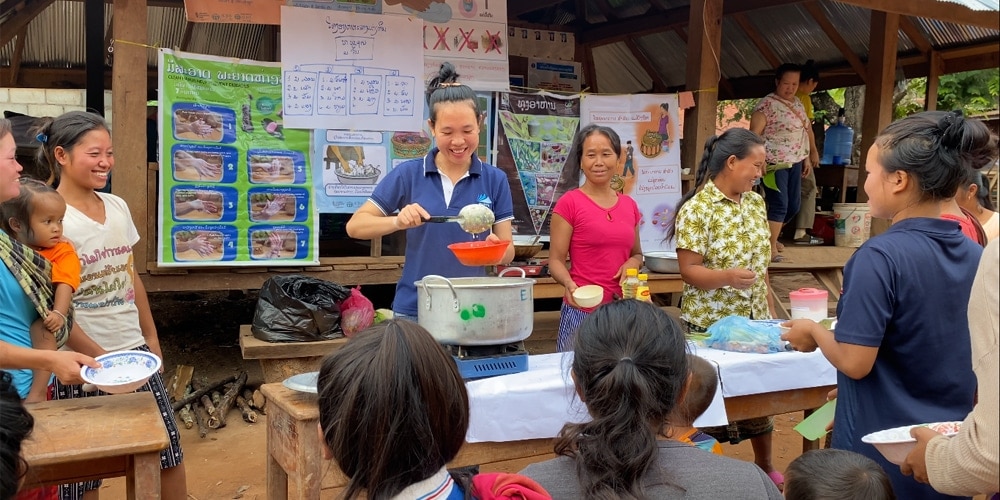
“I want to see women and children receive more care and support from their families,” Chef Touktick, ADRA Laos’s health and nutrition officer, said recently. “I want them to have access to good nutrition, health care, and information. These things may not make them rich, but they will have good health, know how to care for themselves and their families; children will grow healthily, and everyone will be free from malnutrition.”
As an organization charged with providing food for the hungry, water to the thirsty, clothes to the naked, healing to the sick, and comfort to the destitute, the Adventist Development and Relief Agency (ADRA) in Laos has always had a soft spot for children and mothers who are struggling in the vicious cycle of poverty and malnutrition, officers said.
Currently, ADRA Laos is implementing phase II of the nutrition and livelihood project in Laos, one of Southeast Asia's poorest countries. The project works in Xienkhouang Province, where acute malnutrition is as high as 10 percent, chronic malnutrition is 33 percent, and more than 12 percent of children under five years of age are underweight. The project addresses undernutrition through a variety of interventions. One approach is the Positive Deviance/Hearth or community nutrition rehabilitation program. It integrates feeding with education, community management, growth monitoring, counseling, and referrals to improve mothers’ and children’s nutritional status.
After joining the ADRA Laos family recently, Touktick, whose real name is Chanikone Louangoudom, immediately earned the moniker of chef because of her cooking skills. As a woman, she champions women’s and children’s education.
Chef Touktick does not consider herself a chef, particularly when cooking for friends or at home. Still, she is skillful in preparing nutritious food for malnourished children and in advising their parents.
“I’m very happy and glad to play a part in helping people learn about nutrition and enabling them to know what a good diet is, become healthy and aware of food diversity,” Chef Touktick said when asked how she felt about her role. “I’m glad that children are receiving more attention from their parents, and women have more access to health care. The community realizes the importance of good nutritional practices. These things are very important because they dictate their health now and in the future.”
“What I feel proud of the most is helping people in remote areas to learn. I am happy being a nutrition officer because it is related to my education, which is agriculture. These two go hand in hand. Good agriculture brings about good nutrition and good health to consumers,” she continued.
Malnutrition is a severe issue in the ADRA Laos-targeted villages. Through the community rehabilitation program, children under five years old are assessed. Those found stunted, wasted, and underweight are enrolled in a 12-day feeding session called a “stone soup.” Each household brings together what they have. The ADRA staff then turn the ingredients into a balanced, nutritious meal for malnourished children (six months to five years old). During these 12 days, children and mothers participate in educational activities such as nutrition awareness, cooking demonstrations, hygiene awareness, drawing/coloring, and games. Upon joining the program, participating children are monitored throughout the year on the 12th, 30th, 90th, 180th, 270th, and 360th day.
Besides communal activities, the project team (including ADRA staff, village health volunteers, and health center staff) also visits pregnant and lactating mothers to share health messages and teach them how to take care of themselves, their families, and their children.
Like Chef Touktick, ADRA Laos hopes that through this project intervention, mothers, children, and the community will become nutritionally balanced, enjoying good health and facing a bright future.
ADRA Laos is grateful for the funding provided by the Canadian Foodgrains Bank, ADRA Canada, and other donor offices.
The original version of this story was posted on the Southern Asia-Pacific Division news site.